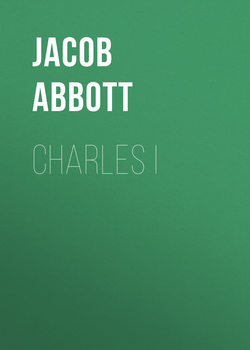Charles I

Реклама. ООО «ЛитРес», ИНН: 7719571260.
Оглавление
Abbott Jacob. Charles I
PREFACE
Chapter I. His Childhood and Youth
Chapter II. The Expedition into Spain
Chapter III. Accession To the Throne
Chapter IV. BUCKINGHAM
Chapter V. The King and his Prerogative
Chapter VI. Archbishop Laud
Chapter VII. The Earl of Strafford
Chapter VIII. Downfall of Strafford and Laud
Chapter IX. Civil War
Chapter X. The Captivity
Chapter XI. Trial and Death
Отрывок из книги
King Charles the First was born in Scotland. It may perhaps surprise the reader that an English king should be born in Scotland. The explanation is this:
They who have read the history of Mary Queen of Scots, will remember that it was the great end and aim of her life to unite the crowns of England and Scotland in her own family. Queen Elizabeth was then Queen of England. She lived and died unmarried. Queen Mary and a young man named Lord Darnley were the next heirs. It was uncertain which of the two had the strongest claim. To prevent a dispute, by uniting these claims, Mary made Darnley her husband. They had a son, who, after the death of his father and mother, was acknowledged to be the heir to the British throne, whenever Elizabeth's life should end. In the mean time he remained King of Scotland. His name was James. He married a princess of Denmark; and his child, who afterward was King Charles the First of England, was born before he left his native realm.
.....
Little Charles was four years old when he reached Windsor Castle. They celebrated his arrival with great rejoicings, and a day or two afterward they invested him with the title of Duke of York, a still higher distinction than he had before attained. Soon after this, when he was perhaps five or six years of age, a gentleman was appointed to take the charge of his education. His health gradually improved, though he still continued helpless and feeble. It was a long time before he could walk, on account of some malformation of his limbs. He learned to talk, too, very late and very slowly. Besides the general feebleness of his constitution, which kept him back in all these things, there was an impediment in his speech, which affected him very much in childhood, and which, in fact, never entirely disappeared.
As soon, however, as he commenced his studies under his new tutor, he made much greater progress than had been expected. It was soon observed that the feebleness which had attached to him pertained more to the body than to the mind. He advanced with considerable rapidity in his learning. His progress was, in fact, in some degree, promoted by his bodily infirmities, which kept him from playing with the other boys of the court, and led him to like to be still, and to retire from scenes of sport and pleasure which he could not share.
.....